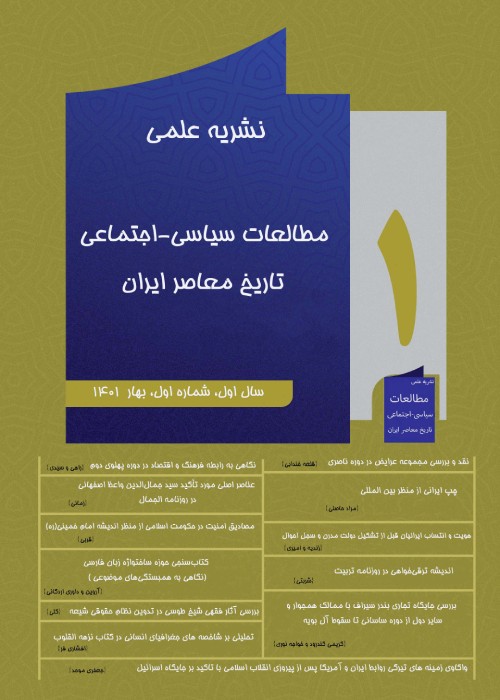Jihadist Management as an Efficient Management Based on Islamic Culture (Concepts, Distinctive Features, and Components)
Author(s):
Article Type:
Research/Original Article (دارای رتبه معتبر)
Abstract:
A review of the history of human civilization shows that various management styles have been experienced. The formation and evolutionary process of management styles have been subject to variables such as job type, organizational structure, and the prevailing philosophy of society, and the evolution of theories has not yet ceased. In line with the introduction of concepts such as servitude, ethics, spirituality, and value-based management into the field of management, management approaches in alignment with these concepts were formed. Jihadist management, as an achievement of the Islamic Revolution, can satisfy all the managerial needs in an Islamic society that is anti-oppression, justice-oriented, and focused on construction. Therefore, the aim of the present research is to investigate Jihadist management as an efficient management based on Islamic culture. This research was conducted through a systematic review method. For this purpose, articles related to the research topic were studied. Based on the concepts presented in various definitions of Jihadist management, it can be said that Jihadist management is derived from Islamic themes and a value-based thinking paradigm that aims for divine proximity, spiritual reward, servitude, honoring people, and in line with the comprehensive goals of the Islamic Revolution (including national policies, transnational, justice-oriented, elimination of oppression, construction, etc.). In the implementation of this type of management, ethical, Islamic, people-oriented, and justice-oriented methods are utilized. The components of Jihadist management include intellectual and practical commitment to Islam, justice-oriented, Jihadist, insight, vigilance and presence, authority, servitude, and decisiveness in the face of amiability. Additionally, the characteristics of a Jihadist manager include Islamic and humane beliefs, insight, Islamic behaviors, order and effort, and general personal capabilities. The changing conditions of organizations, the complex international conditions imposed on Iran, cultural diversity among organizational employees, existing gaps due to limited resources in organizations, and the developing status of our country necessitate that Iranian managers possess a different spirit compared to global management standards.
Keywords:
Language:
Persian
Published:
Journal of Socio-Political Studies of Iran's Contemporary History, Volume:2 Issue: 2, 2023
Pages:
148 to 170
magiran.com/p2694818
دانلود و مطالعه متن این مقاله با یکی از روشهای زیر امکان پذیر است:
اشتراک شخصی
با عضویت و پرداخت آنلاین حق اشتراک یکساله به مبلغ 1,390,000ريال میتوانید 70 عنوان مطلب دانلود کنید!
اشتراک سازمانی
به کتابخانه دانشگاه یا محل کار خود پیشنهاد کنید تا اشتراک سازمانی این پایگاه را برای دسترسی نامحدود همه کاربران به متن مطالب تهیه نمایند!
توجه!
- حق عضویت دریافتی صرف حمایت از نشریات عضو و نگهداری، تکمیل و توسعه مگیران میشود.
- پرداخت حق اشتراک و دانلود مقالات اجازه بازنشر آن در سایر رسانههای چاپی و دیجیتال را به کاربر نمیدهد.
In order to view content subscription is required
Personal subscription
Subscribe magiran.com for 70 € euros via PayPal and download 70 articles during a year.
Organization subscription
Please contact us to subscribe your university or library for unlimited access!



